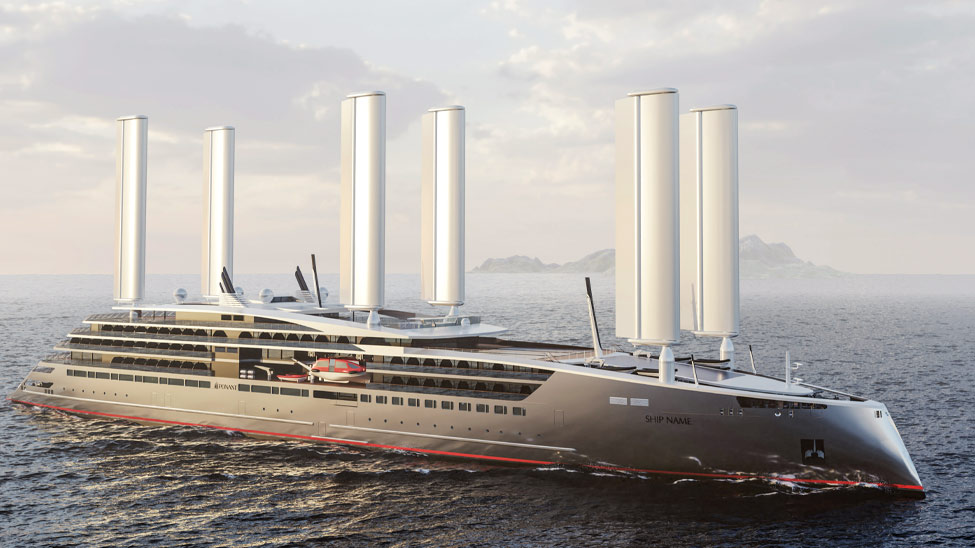By
Susan Parker |
Luxury cruise brand Ponant announced the acquisition of a majority stake in Aqua Expeditions, the small ship expedition company known for its river and ocean cruises in South America, Southeast Asia and beyond, on 16 January 2025.
“This partnership aligns perfectly with our vision of excellence and sustainability in the luxury sector,” says Hervé Gastinel, CEO and chief sustainable officer at Ponant. “It reflects our commitment to offering unparalleled travel experiences in iconic destinations such as the Galapagos and now also river journeys, while preserving the natural beauty of the places we explore.
“Our primary objective is to become the leader in more responsible tourism by evolving from a cruise company into a travel company. We aim to take a comprehensive approach to our customers’ travel projects, including not only the cruise itself but also transfers and land stays before and after.”
The company also wants to expand its pre- and post-cruise travel offerings. This means developing a comprehensive package that includes transportation, accommodation, tours or participation in events before and after the onboard experience.
Ponant is investing in partnerships with local communities too. Before each cruise, it conducts reconnaissance missions to validate itineraries and minimise environmental impacts, for example, by using satellite systems for geostationary positioning of ships without anchoring to protect the seabed. “Innovation is a priority for us to develop a more tailored and responsible offering, helping us move away from overtourism,” says Gastinel.
When it comes to innovation, Ponant is prioritising technical aspects over commercial concerns, investing heavily in R&D to create a fundamentally new cruise experience tailored to a market that Gastinel predicts will likely change significantly. “In 2020 we were the first international cruise line to join the Green Marine environmental certification programme. And, in 2024, Ponant was the first cruise line to receive Green Globe certification, having made a commitment to minimise the environmental and social impact we have on the areas we visit.”
Another of Ponant’s environmental goals is to reach net zero. “A major challenge we’re facing in the cruise industry is to successfully achieve the energy transition, in line with the International Maritime Organization’s (IMO) goal of carbon neutrality by 2050,” says Gastinel.
Thanks to its R&D department, Ponant’s recently modernised fleet features the best available environmental technologies. “We focus on innovation and technology, not only for decarbonisation but also for waste management, reducing underwater noise emissions, and minimising our energy needs,” explains Gastinel.
Ponant is also working with several partners, including naval architect Stirling Design International, to develop a zero-emission cruise ship that can operate using multiple energy sources. The project has received support from the European Union’s Innovation Fund, marking a significant milestone in accelerating the sector’s transition to decarbonisation.
“With Swap2Zero, we are very much at the forefront of the industry, aiming to sail a decarbonised ship by 2030,” says Gastinel “The most exciting aspect of our approach is the multi-energy strategy, which could significantly exceed carbon savings.”

Ocean Wings Stirling Design International
Ponant’s Swap2Zero ship will use wind and green hydrogen-powered fuel cells to operate without emissions
The Swap2Zero project envisions using wind to power up to 50 per cent of the ship’s propulsion, enabling it to sail at 10 knots and offer itineraries focused on smaller, regional discoveries. When wind is unavailable, green hydrogen-powered fuel cells will provide propulsion. Hotel operations will be powered by biomethane, with the resulting carbon emissions being captured and liquefied onboard for disposal onshore. This biogenic carbon can then be used in combination with green hydrogen to create synthetic fuel, facilitating a circular economy.
“Currently, we’re working on a smaller ship with just 100 cabins,” says Gastinel. “However once launched, these technologies can be tested and scaled up for larger vessels.”
The company has partnered with France-based startup Syroco to leverage artificial intelligence and create a digital twin. “This will optimise the design of the Swap2Zero ship project and also improve the future operation of our vessels at sea by optimising routes, speed, and adjustments based on weather conditions, currents, and more,” says Gastinel.
In addition, Ponant is collaborating with French startup Farwind Energy on a major project to provide a ship with its own source of renewable energy produced locally.
“The Swap2Zero programme is the ideal demonstrator to scale up this solution and set new standards,” explains Gastonel. “Our joint roadmap aims to achieve carbon-neutral operations by 2030. Farwind’s energy ship project will be developed in close collaboration so we can share progress on the management of hydrogen onboard, cooperate on the development of first use cases, overcome potential technological obstacles, and commission both Ponant’s Swap2Zero project and the first energy ship at the same time by 2030.”
Discover more insights like this in the Spring/Summer 2025 issue of Cruise & Ferry Review. Don’t miss out – subscribe for FREE and get the next issue delivered straight to your inbox.